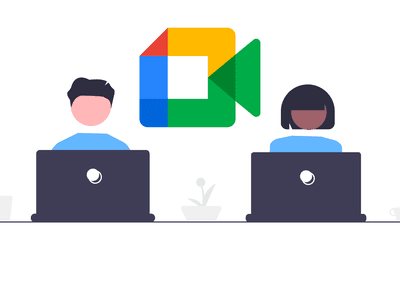
"The Core Language of Cutting-Edge VR Experiences"

The Core Language of Cutting-Edge VR Experiences
Virtual Reality Terms You Should Know

Benjamin Arango
Mar 27, 2024• Proven solutions
Motion Platform
It is a kind of highly controlled physical system which assists in the simulation of display motion into the real motion senses in the VR world. It provides life to all captured digital elements and let users believe that they are playing with a world of all living things.
Eye Tracking
Eye Tracking works the same as that of head tracking and assists to keep users eye in motion as per the requirement of VR stuff. HMD assists in proper tracking of eye and head with integration to VR content, if you talk about VR games then this feature makes you feel the reality inside the gaming world and when you have to aim at targets then they can be controlled like real-world movements.
Head Tracking
Here we are going to talk about the sensors that track the movement of users’ heads and keeps images moving in such a manner that they match head positions perfectly. For example, if you are using an Oculus Rift then the head tracking feature will force your head to look up, down, right, and left so that you can see the world in the way virtual reality wish to make you see.
Motion Tracking
It is described in terms of the ability to record all movements in such a manner that they appear to be a part of the real world. It will help you to get a closer look at every element that you want to observe in VR content, the same as that of real life. It is one of the biggest elements in the world of Virtual Reality that forces your senses to get involved with the tricky science of virtual environment with a feeling that you are wandering in a fantasy world.
Refresh Rate
When you are looking at a series of images in the world of Virtual reality then refresh rate helps to control the movement of frames so that they can be managed to move at a faster or slower rate as per requirement. Refresh rate controls lead and lag of a series of images in such a manner that users avail a responsive experience. At the standard rate, users need 60 frames per second.
Head Mounted Display (HMD)
This term will be more often used when you enter the world of Virtual Reality because it is associated with reading and hearing abilities in VR technology. In simple terms, HMDs are the specialized form of hardware that is responsible to deliver VR experience to users. It is designed in shape of a helmet or goggle that users can strap on their faces easily or can wear on their heads. The usage depends upon the requirements of your VR gear because some sensors work with head tracking whereas others do not need such elements.
Latency
If you have ever experienced the world of Virtual Reality then you surely might have noticed that whenever you move your head in the directive motion then the visuals do not keep up accordingly, this is called latency. This is an unpleasant thing about Virtual Reality that adds a limitation to match virtual world with the real world. The lag caused by this latency period is a complaint from VR content users and it occurs due to a variety of reasons.
Immersion
The combination of VR and MR leads to immersive experience of users where high-end manipulations can be done on images, sounds as well as other stimuli so that they can stay alive in an artificial environment.
Field of View (FOV)
The term Field of View presents the angle of the visual field in degrees where it is important to keep FoV higher to that immersion can be extended to a higher end of the scale. Technically, the viewing angle of the human eye reaches up to 200 degrees thus it becomes important to raise the angle of FoV so that higher immersion can be resulted.
Screen Resolution
Screen resolution actually describes the number of pixels to be displayed on-screen during Virtual Reality scenes. Same as the concept of television monitor or computer screen, more number of pixels mean much better resolution and much clearer as well as the realistic quality of images. The technology of Virtual Reality serves with awesome resolution and cameras developed for capturing such images are designed to add more number of pixels per frame. With specially developed VR headsets, the screen is divided into two portions that are observed by each eye separately and the screen door effects added to VR technology makes users feel like they are watching through a door.
Virtual Reality
First of all, it is important to know the actual meaning of VR that stands for Virtual Reality. The VR immersion is actually achieved by mixing two most important senses of living beings that are vision as well as hearing; for this VR technology utilizes headphones and headsets. With VR environment you will feel real life in photographs also and the experience with memories will go amazing.
Augmented Reality
It is simply the process of overlaying digital elements or data on the real world so that you can interact with reality and digital elements on same platform. Although Augmented Reality technology is still running behind Virtual Reality, the day they will converge then real wonders will be created with mixed reality effects.
Mixed Reality
The convergence of Virtual and Augmented reality is known as mixed reality. MR creates a blend of the virtual world into the physical space and it has the power to bring life into digital elements resulted from highly advanced camera units and VR+AR gears.

Benjamin Arango
Benjamin Arango is a writer and a lover of all things video.
Follow @Benjamin Arango
Also read:
- [New] Becoming a Bull or Bear Best Stock Vids on YouTube
- [New] Boost Call Quality & Creativity Learn to Apply Filters in Zoom
- [New] Elevate Your Instagram Videos Size and Quality Insights for 2024
- [Updated] Blast From the Past Top 1980S VHS Techniques to Infect Your Edits with Flair
- [Updated] Exploring LG's New Tech Horizon in BP550
- [Updated] In 2024, Boosting Your Stream Quality with ZOOM & FB Live
- Data Recovery (iOS)
- Enhance Social Gaming on Xbox Using Zoom for 2024
- From Wanderlusts To Web Presence Your Strategy for Professional Blogging Success for 2024
- How to Protect Your Computer From Malware & Viruses: Essential Measures - YL Computing
- In 2024, Adding Captions to Videos Using Microsoft Photos (Windows 11)
- In 2024, How to Change/Add Location Filters on Snapchat For your Vivo Y78t | Dr.fone
- In 2024, How to Detect and Stop mSpy from Spying on Your Tecno Spark 10 4G | Dr.fone
- In 2024, Universal VMix Adapter
- Quick and Easy Method for Clearing Image Backdrops
- Selecting Ideal Dimensions Aspect Ratio Guide for 2024
- Top-Rated Protection Gear for Samsung Galaxy Z Fold 6: The Ultimate Case Guide
- Title: The Core Language of Cutting-Edge VR Experiences
- Author: Timothy
- Created at : 2025-01-01 18:51:13
- Updated at : 2025-01-04 02:08:28
- Link: https://article-files.techidaily.com/the-core-language-of-cutting-edge-vr-experiences/
- License: This work is licensed under CC BY-NC-SA 4.0.